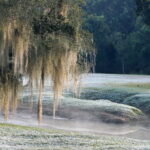RPW Fellows
Helping Nature Rebound: Enabling People to See The Invisible
Mar. 21, 2024—Andrew Kyung is a 2023-24 Humanities in the Real World Fellow. Human beings are impatient creatures. We seek immediate results when taking action, which may have benefited our ancestors millennia ago when harrowing problems necessitated a swift, gung-ho response. Our tendency to look for immediate and tangible results from drastic action persists today. In an...
Legal Career Boosted by Humanities Studies
Feb. 15, 2024—Matt Brolund is a 2023-24 Humanities in the Real World Fellow. This year’s undergraduate cohort are blogging their interviews with professionals who majored in the humanities. To Davis Shugrue, a lawyer trained in the humanities, debate is about far more than arguing for the sake of it. From his undergraduate studies to his current position...
The Human Aspect of the Humanities
Feb. 9, 2024—Armani Dill is a 2023-24 Humanities in the Real World Fellow. This year’s undergraduate cohort are blogging their interviews with professionals who majored in the humanities. As one of the first students to graduate from Vanderbilt with the interdisciplinary major of Law, History, and Society, Zachary Buchta is no stranger to uncertainty and unconventional paths...
Plastic and Rust: Memory Through the Lens of Early Videotape Psychotherapy Archives
Feb. 1, 2024—Carmine Grimaldi is a 2023-24 RPW Faculty Theme Fellow. This year’s cohort explores the theme of “The Place of Memory.” The Introduction of Videotape My research focuses on the early social history of videotape, when the electronic image crept into and profoundly reshaped the institutions and daily experiences of postwar America. In contrast to film,...
My Journey as a Literary Scholar: From Theory to Archives
Oct. 23, 2023—André Ramos-Chacón is a Mending and Transforming Fellow from the Department of Spanish and Portuguese. For five years, as an undergraduate student of literature in Peru, I was formed to understand, appropriate, and apply theory for my study of books. Though, arguably, I was being formed at the margins of the academic establishment —in a...
Adapting Galeano’s “Magical Marxism”
Oct. 17, 2023—Jefferson Cowie, 2023-24 RPW Center Faculty Fellow. This year’s group is exploring the theme of “The Place of Memory.” “Memory of Fire” Who is responsible for this forgetfulness? "It's not a person. It's a system of power that is always deciding in the name of humanity who deserves to be remembered and who deserves to...
What Makes a Successful City?
Oct. 12, 2023—Peter Chesney is a Collaborative Humanities Postdoctoral Program Fellow with the Department of History of Art & Architecture. The Successful City Vanderbilt University hosted a symposium, “Universities, Cities, and Communities,” on September 21-22, 2023, to examine the question, “What makes a successful city?” A successful city is defined by the resilience of its long-standing...
Ethics of Memory: Remembering the May 18th People’s Uprising in South Korea
Oct. 5, 2023—Seulbin Lee, 2023-24 RPW Center Themed Graduate Fellow. This year’s group is exploring the theme of “The Place of Memory.” The Martyrs of Gwanju During the 2023 national commemoration ceremony of the May 18th People’s Uprising in 1980, held in the city of Gwangju, a small group of activists who had traveled from Seoul raised...
The Politics of Developmental Disruption: Memory, Place, and the Pandemic in Southern Brazil
Sep. 27, 2023—Dominique Béhague, 2023-24 RPW Center Faculty Fellow. This year’s group is exploring the theme of “The Place of Memory.” How and with what consequences do everyday people push against standardized views of “normal” and “healthy” development? Can reclaiming memory and place from the way developmental sciences conceive of these play a role in challenging developmental...
Bad Faith
Sep. 20, 2023—Tan Fireall, 2023-24 RPW Center Themed Graduate Fellow. This year’s group is exploring the theme of “The Place of Memory.” As we are born, we emerge through a kind of rupture. There is blood, tissue, and sometimes wailing from the pain and perhaps the existential quandary of being born to die. I wonder if this...









